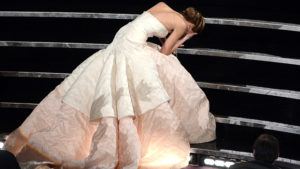I didn’t have much of an appetite for the Oscar’s this year.
Normally I’d be all in, enjoying the glittering and flimsy spectacle as much anybody, but this year felt different, and whatever spirit or anticipation I’d typically bring to the affair was just not there. In fact, I was dreading it, imaging it another long– really long– continuation of all the sneering, bitter arguments that were ceaselessly looping through my media feeds.
Social media has begun to feel like tuning in to some late-night AM radio call-in show. The voices, disembodied and angry, fire from the dark, each one inveighing some furious certainty. There is no complaint too small or too large, and each one comes obsessively detailed by the over-confident sender. There’s an urgency to all these declarations, too, as if impulse more than thought, and the momentum always moves forward– retreat or rumination, let alone a kind of sympathy, utterly unthinkable.
To willingly step into this each day, as I do, is an act of madness. To me, it feels like being closed in a room with a hundred growling dogs while the unmediated grievances of the world strobe in front of you. It colours your mood, this, so even before something of “actuality” happens in your physical life, you’re already tense and combat ready– you’ve already become somebody you don’t want to be. And I swear, if we could somehow tap into the cataract of doomed energy that feeds this monster, we would be masters of the universe.
Initially I had imagined the Internet as something almost utopian. It would be democratizing and unifying, kind of like The Force, and united by the millions we would be able to destroy evil Death Stars. Instead, it’s proven to be infinitely divisive, revealing that the Internet itself might be a horrible Death Star.
The limitless options presented by technology have moved us away from what had been commonly shared. Whatever our interests may be, however perverse, remote or idiosyncratic, we can find a subculture dedicated to that passion or hatred online. We are never alone, but our channels never seem to be open, either. Living in gluttonous echo chambers of our own devising, we now customize our experiences, changing them to suit our needs rather than adopting to the mean. In this way, popular culture is being eradicated, with each person becoming a hermetically sealed culture unto themselves.
Naturally, the idea of compassion or empathy withers in this climate of radical tribalization. It’s now completely normal for people to proudly boast of de-Friending somebody who disagrees with their politics or to happily live within the paradox of being tolerant of everything but intolerance. If you step into Twitter, far from finding a marketplace for the free exchange of ideas, you find a war zone. Every once in a while you pop up from your trench, fire off a few salvos at the enemy, and then duck down again—kind of like a shooter game.
The Internet in the age of Trump ( who I believe saw and exploited this rather than created it), is a grim landscape lacking in kindness.
Full of hall monitors ready to pounce on anybody not adhering to the common orthodoxy, it’s a place you go to confirm your certainties and your enemy’s idiocies. It is a place where fighting, where aggression is the entertainment, and it is perhaps the loneliest place on the planet.






